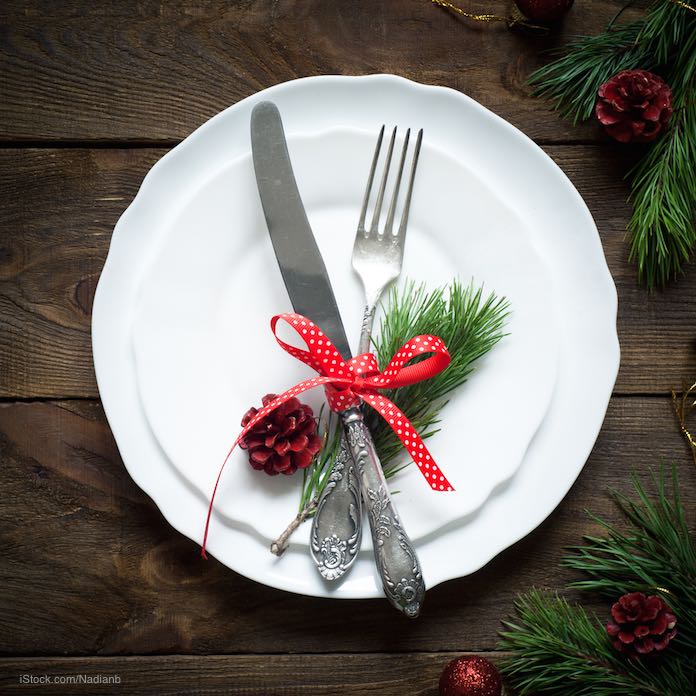These holiday food safety tips from the Centers for Disease Control and Prevention (CDC) will help you celebrate and stay safe and healthy. Christmas and Hanukkah and Kwanza and New Years celebrations typically involve large meals and lots of entertaining. These gatherings warrant special food safety knowledge.

Serving a large group of people brings inherent risk. First of all, large quantities of food, especially foods like gravies, can easily be contaminated with bacteria like Clostridium perfringens, which grows in anaerobic environments, like the centers of large batches of food. This pathogen produces a toxin that makes you sick. So it’s imperative that you divide large batches of food into small, shallow containers after serving and refrigerate them as soon as possible. And reheat these foods to 165°F every time.
Then, make sure that you keep potentially contaminated foods, such as raw meat and poultry, separate from foods that are eaten uncooked, like produce. Use separate cutting boards and clean counters and utensils after you work with raw meat.
Always cook food thoroughly to safe final internal temperatures. Meat, turkey, chicken, seafood, and eggs can be contaminated with pathogens like E. coli and Salmonella. And those pathogens can survive in food not cooked to safe temps. Use a reliable food thermometer every time you cook and bake.
When you are eating, be aware of the two hour time limit rule. Any perishable food should be refrigerated after it has been out of the oven or fridge for two hours. You are trying to prevent foods from sitting in the danger zone of 40°F to 140°F too long. Bacteria double in numbers every 20 minutes in that temperature range.
If you are going to make recipes that use uncooked eggs such as eggnog and Caesar salad dressing, use pasteurized eggs. And follow the expiration dates on that product to the letter.
Do not eat raw cookie dough or cake batter and don’t let your kids eat them either. Both uncooked flour and raw eggs can contain pathogens that will make you sick. You can find edible cookie dough and heat treated flour to use if you can’t resist, along with those pasteurized eggs.
Thaw your turkey safely, or cook the turkey from frozen. It takes 24 hours to thaw 4 to 5 pounds of turkey, so buy the frozen turkey a few days ahead of time and plan accordingly. You can thaw turkey in cold water, changing the water every 30 minutes, but remember that you have to cook that turkey as soon as it’s thawed.
Finally, wash your hands. Wash them after using the bathroom, before you start cooking, after handling potentially contaminated food, and after you are done. Wash your hands before eating too.
And have a wonderful holiday season with these holiday food safety tips.




